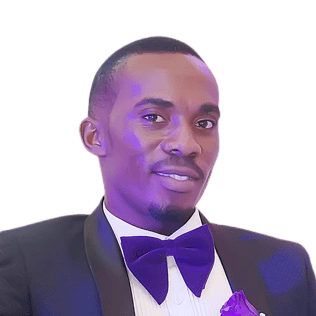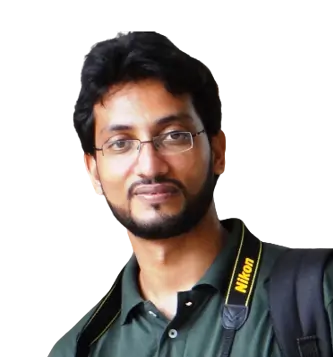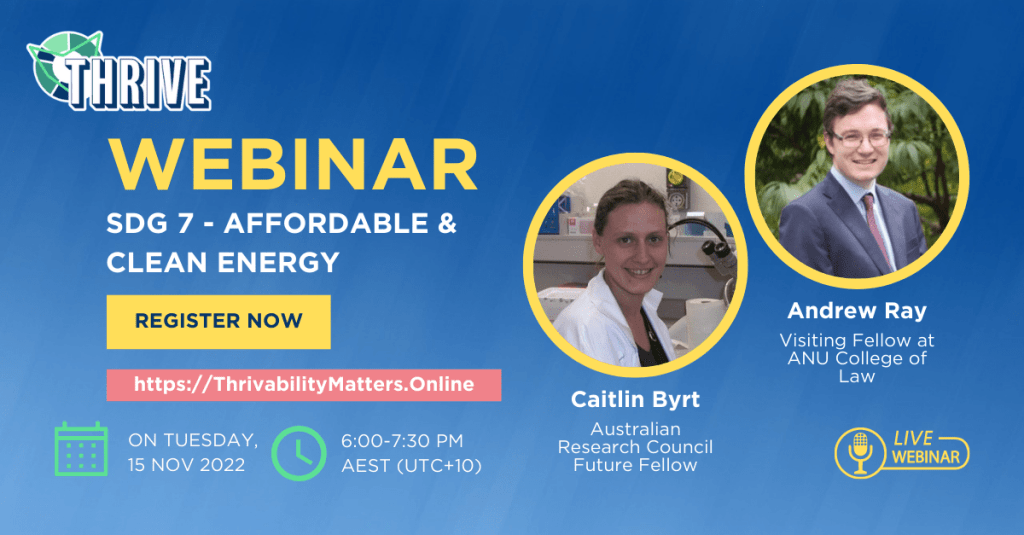The THRIVE project would like to extend our warmest gratitude to Olusegun Durojaiye and Ginish Cheruparambil Baby for giving guest presentations at our October Thrivability Matters Webinar. The theme of this webinar was the United Nations Sustainability Development Goals, SDG1 & SDG2 (No Poverty & Zero Hunger).
About Our Speakers

Olusegun Durojaiye is an agronomist with over six years of professional experience in plant and animal production, and soil science for food and stock feed. With a passion for sustainability and solving the ever-present issues of hunger and malnutrition, he looks forward to discussing how a Geographic Information System (GIS) and other remote sensing tools can be useful in ensuring food security.

Dr Ginish Cheruparambil Baby is a Chartered Economic Policy Analyst with over 6 years of experience working in both financial services and academia. As someone who strives to bring together multiple disciplines to solve our world’s problems, he seeks to discuss the relationship between poverty and food security, and how policy changes can impact peoples’ lives.
Summary Of the Webinar
Olusegun Durojaiyeon the topic of Application of GIS and Remote Sensing as Complimentary Tools for Food Security Analysis
Olesegun begins his presentation by discussing the definition of food security and insecurity. Food security is defined as having access to sufficient, safe, and nutritious food on a physical, social, and economic level. Food insecurity occurs when people lack these necessities. Following that, he discusses how both developed and developing economies are being challenged by the global food and energy crisis. An example of this is food insecurity affecting people in poverty the most when food prices rise.
According to Olesegun, both public and private agencies respond to a food security crisis by creating responses with strategic and long-term approaches. The United Nations (UN) are attempting to halve the proportion of people suffering from hunger through the Sustainable Development Goals (SDGs), especially through SDG1 & SDG2. There are three main categories for food security: acute, occasional, and chronic. Moreover, there are factors that can lead to food insecurity, such as informational factors, geographic factors, and economic factors.
By gathering information on crop management through Remote Sensing Technology and the Geographic Information System (GIS) we can gain near real-time information on crop growth conditions, production, and damage of crops due to natural disasters like cyclones, floods, and droughts. The GIS can be used to map food availability, accessibility, and utilisation in relation to other sustainable livelihood indicators. This includes remote sensing that acquires and gives better insight into observed objects of interest.
Dr Ginish Cheruparambil Baby on the topic of Inflation & Poverty
Ginish begins his presentation by discussing inflation and what affects it. For example, increases in prices, shortages of supply, and increased demand all contribute to inflation. He then moves on to discuss multidimensional poverty, the capability approach and functioning:
- Functioning is an achievement, and a capability is the ability to achieve.
- Functionings are directly related to the way in which people live their lives.
- Capabilities are connected with the freedom people have in their choice of life or functioning.
- Poverty is viewed in terms of capability deprivation.
Being under the poverty line means living on less than US$1.90 per day. Increases in prices for basic necessities cause those living under the poverty line to struggle even further. According to Ginish, the non-income dimension of poverty is a denial of rights where poverty is powerlessness, and a lack of representation and freedom. For example, the net effect in an economy leads to a reduction in the quality of food intake and an increase in expenditure, leading to a vicious cycle of poverty.
Ginish then moves on to discuss the war in Ukraine, which has caused wheat prices to go up by 50% and oil prices to rise by 40%. The war and the ongoing COVID-19 pandemic have both created a higher level of inflation which seems like it will not stabilise. Ginish also shares many interesting graphs on estimates where, for example, chief economists expect high inflation. These can all be viewed in his presentation. In his summary, Ginish discusses possible solutions:
- An efficient Public distribution scheme
- Gender Enhancement
- Education (Skill Enhancement)
- Commit to Climate Change
- Universal Basic Income.
CONCLUSION
In summary, Olusegun Durojaiye’s presentation allows us to better understand what food security and insecurity mean on a global scale. Moreover, he provides insight into how GIS and remote sensing can be used to gather information on crop management, which allows us to map food availability, accessibility, and utilization. Furthermore, Ginish presents us with data on how global inflation is affecting those living in poverty. He also discusses how those living in poverty face ongoing difficulty participating in social agendas.
If you missed out on the presentations or the live Q&A session, you can view the recording on our YouTube channel once it’s released.
Make sure to register for the November webinar on SDG7 – Clean & Affordable Energy.
Thanks, and do keep on thriving!
SUBSCRIBE TO OUR NEWSLETTER
GOT A QUESTION ON THIS TOPIC?
Ask an Expert
COMING UP NEXT MONTH

Next month, we’re focusing on SDG7 – Clean & Affordable Energy, an increasingly pertinent subject given that we are using most of our non-renewable resources to create unsustainable energy. On that front, we’re thrilled to have two experts (Andrew Ray and Caitlin Byrt) talk about what it means and how to get there. Register now and save the date!
JOIN OUR UPCOMING WEBINAR

















